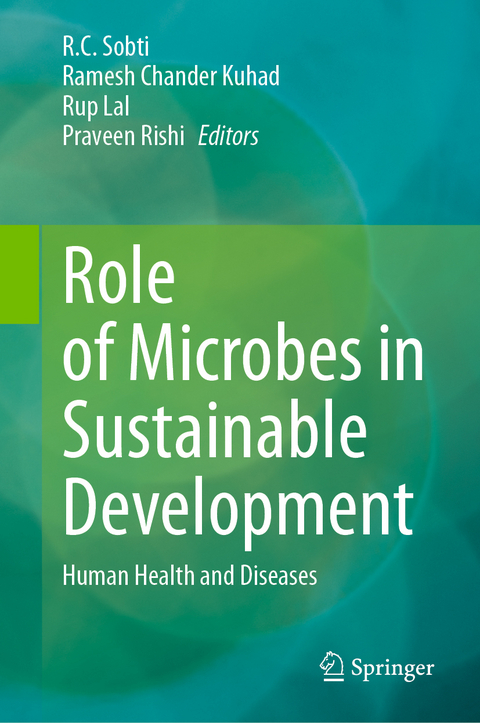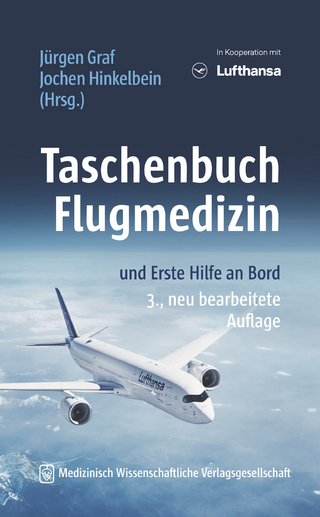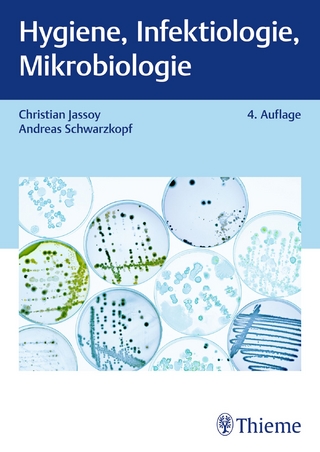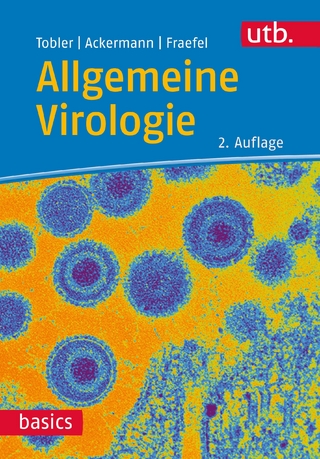
Role of Microbes in Sustainable Development
Springer Verlag, Singapore
978-981-99-3125-5 (ISBN)
This book examines the role of human microbiome in human health and diseases. The initial chapters present tools for genetic manipulation of gut microbiota and the therapeutic applications of engineered microbiota. They discuss the interaction between human microbiota and host in defining the prominent role of microbes in the development and progression of major human diseases. The book also summarizes the current applications and trends for the development, production and analytical characterization of recombinant therapeutic proteins in microbial systems. It also reviews the role of microbes in the production of vaccines and antibiotics. Further, the book presents bacterial products, including proteins, enzymes, immunotoxins and secondary metabolites, that target cancer cells and cause tumour regression. The chapters also discuss the critical role of gut microbiota dysbiosis in the pathogenesis of autoimmune disease and in bowel-related diseases. Towards the end, the book exploresthe role of intestinal microbiota in metabolic health and the pathogenesis of common metabolic disorders. It presents state-of-the-art insights into important aspects of United Nations—Sustainable Developmental Goal 3.
Professor (Dr) Ranbir Chander Sobti, Former Education Consultant Governor of Bihar, Senior Scientist (Indian National Science Academy), Former Vice Chancellor, Babasaheb Bhimrao Ambedkar University, Lucknow (UP), and Panjab University, Chandigarh, is, indeed, a polymath—a renowned academician, distinguished scientist, dynamic administrator and a visionary gifted with an immensely optimistic disposition and integrity of character, words and action. He has published more than 350 high-impact research publications, about 50 plus chapters in books, 45 books and 23 sponsored research projects. Professor Sobti is a Fellow of the Third World Academy of Sciences (TWAS), National Academy of Sciences, Indian National Science Academy, National Academies of Medical Sciences and Agricultural Sciences and of the Canadian Academy of Cardiovascular Diseases and is associated with many other academic associations and institutions in the domain of higher education and research. The litany of honours showered on him includes, among others, the INSA Young Scientist Medal (1978), UGC Career Research Award, Punjab Rattan Award, JC Bose Oration Award and the Life Time Achievement Award of the Punjab Academy of Sciences, Zoological Society of India and the Environment Academy of India, besides many other medals and awards of various reputed national and international organizations. As a protean public intellectual, Professor Sobti is a remarkable leader in the domain of science/scientific knowledge—both in theory and practice. In recognition of his enormous contribution to higher education, he has been bestowed with a large number of prestigious awards and medals which adorn his academic and professional career. The Government of India bestowed upon him the honour of ‘PADMASHRI’ in 2009 by way of rightfully acknowledging his great contribution to higher education in India. On 2 July 2016, he was also honoured with ‘Bharat Gaurav’, Life Time Achievement Award at the House of Commons, British Parliament, London, U.K. He had been General President of Indian Science Congress in the session 101. He is a widely travelled scientist. Prof. Kuhad is Chairman/Member of Executive Council/Academic Council/Court/Governing Board of various universities, UGC and NAAC. In the past, he has also served as a member of the University Grants Commission (UGC) and a member of Executive Council and Governing Body of UGC NAAC. He is a Fellow of the Academy of Microbiological Sciences (FAMSc), Fellow of the National Academy of Sciences India (FNASc), Fellow of the National Academy of Agricultural Sciences (FNAAS) and Fellow of Biotech Research Society (FBRS). He has also served as a Professor at the University of Delhi and as Vice-Chancellor at Central University of Haryana, Mahendergarh. He is the Founder Chairman of the Indian Academy of Microbiological Sciences and has served as the Joint Director of the Institute of Life Long Learning (ILLL), University of Delhi. He has also been the General Secretary (2004–2010) and President (2011–2012) of the Association of Microbiologists of India. He is an editor/associate editor of various journals. He is the recipient of prestigious awards and recognitions, a few of which are life time achievement awards, AMI (2019), the prestigious Prof. G. S. Rangaswamy Memorial Award (Biennial) (2017), Dr. G. B. Manjrekar Award (2014), AMI-Platinum Jubilee Life Time Achievement Award (2013), AMI-Titan Biotech Award (2011), Short Term Biotechnology Overseas Research Associateship Award (2002–03), AMI- Alembic Award (1999), Biotechnology Long Term Overseas Research Associateship Award (1995–96), UNIDO/ICGEB Fellowship (1994) and Commonwealth Scholarship for Post-Doctoral Research Prof. Rup Lal is presently the INSA Senior Scientist at Acharya Narendra Dev College, Delhi University. He is the Fellow of Indian National Science Academy, National Academy of Sciences, National Academy of Agricultural Sciences, Academy of Microbiological Sciences. Presently, he is also the Senior Ambassador of Indian region for ISME (International Society for Microbial Ecology), The Netherlands and Federation of European Microbiological Societies (FEMS). He is also the Advisor to IMiLI-SAC (International Microbial Literacy Initiative-South Asia Center) to spearhead the microbial literacy campaign in India as well as Abroad. He has over 40 years of teaching, administrative and research experience in the area of microbial diversity, genomics and metagenomics. He has supervised 75 PhD thesis and trained more than 150 UG/PG students. He has over 250 publications in peer-reviewed journals with 9147 ISI citations & h-index 47. He has delivered more than 300 lectures in the area of Biotechnology, Microbiology, Genomics, and Metagenomics at various national and international platforms. Professor Lal is the recipient of several prestigious fellowships including the Alexander von Humboldt Fellowship (Germany), DBT Overseas Fellowship and Indo-US-ASM Professorship in Microbiology, Endeavour executive fellowship (2018-2019), Moselio Schaechter Distinguished Service Award from American Society for Microbiology and many more Prof. (Mrs.) Praveen Rishi is a Professor in the Department of Microbiology, Panjab University Chandigarh. She has also been the Dean, Faculty of Science, Panjab University. She is also the President of the Association of Microbiologists of India (AMI). Dr. Rishi has to her credit 150 research publications in international and national journals of high repute. She is a Fellow of the Academy of Microbiological Sciences (FAMSc) as well as of the Indian Association of Biomedical Sciences (FABMS). She has also been the recipient of DBT overseas Associateship, INSA Visiting Fellowship and Dr. Y.S. Narayana Oration Award by the Indian Council of Medical Research (ICMR), New Delhi. Recently she has been awarded the Prof. S.R. Vyas Memorial Awardas well by the Association of Microbiologists of India (AMI).
1. Microbial Diversity and Their Role in Human Health and Diseases.- Section I: Gut Microbes and Perspectives.- 2. Emerging Microbial Identification Technologies in the Era of Omics and Genome Editing.- 3. Gut Microbiome: Perspectives and Challenges in Human Health.- 4. Probiotics – A Healthy Treasure.- 5. Different Generations of Probiotics: An Effective Way to Restore Gut Homeostasis.- 6. Application Of Potential Microbial Biotechnology for Sustainable Human Health.- Section II: Emerging Technologies in Gut Microbiome Research.- 7. Emerging Technologies and Current Advances in Human Bacteriome Research.- 8. Emerging Microbial Technologies: Mitigating Challenges to Humanity.- 9. Modern Tools of Genome Engineering and Their Applications.- 10. Emerging Technologies to Investigate the Potential of Gut Microbiota in Human Health.- 11. Tools and Techniques for Exploring Hidden Microorganisms: A Potential Future of Human Health Diagnosis.- 12. Crispr-Cas Fundamentals and Advancements in Translational Biotechnology” .- Section III: Gut Microbiome and Metabolic Disorders.- 13. Microbiome and Human Health: From Dysbiosis to Therapeutic Interventions.- 14. Gut Microbiota and Its Role in Human Metabolic Disorders.- 15. Influence Of the Gut Microbiome on Cardiovascular Health and Hypertension.- 16. Role Of Microbiome in Reproductive Health: An Expanding Dimension.- 17. Role Of Bacteriocins in Modulation of Microbiome in Human Diseases.- 18. Emerging Role of Gut Microbiome in Cancer Immunotherapy.- 19. Microbial Secondary Metabolites: Targetting Tumors and Associated Challenges.- 20. Bacteria And Bacteria-Based Products in Cancer Therapy: Current Status and Future Advances.- 21. Communication With Gut Microbiota: An Emerging Strategy to Predict and Prevent Cancer.- 22. Insights in the Cross-Talk Between Microbiota-Gut-Brain Axis: A Focus On Alzheimers’s Disease.- Section IV: Association of Phages and Fungi with Gut Microbiome.- 23. Fungi As a Treasure Trove of Bioactive Compounds for Human Health.- 24. Reminiscing Phages in The Era of Superbugs.- 25. The Potential of Bacteriophages in Treating Covid-19 Associated Secondary Infections.- Section V: Diverse Roles of Microbiome.- 26. Role Of Microbes in Production of Vaccines.- 27. Microbial Induced Calcite Precipitation Approach Towards Sustainable Development.- 28. Microbial Functional Foods and Nutraceuticals.- 29. Synthesis of Nanoparticles by Microbes.- 30. Microbial Biopharmaceuticals in Urolithiasis Management and Treatment.- 31. Use Of Yeast In The Welfare Of Human and Their Applications.- 32. Photoautotrophic Microbes with Potential for A Super Health Food On This Planet.- 33 Autopsy and COVID-19.- 34 COVID and their Impacts on Aquatic Systems: Is it a Solution for Environmental Resilience?
| Erscheinungsdatum | 22.12.2023 |
|---|---|
| Zusatzinfo | 47 Illustrations, color; 8 Illustrations, black and white; XXII, 713 p. 55 illus., 47 illus. in color. |
| Verlagsort | Singapore |
| Sprache | englisch |
| Maße | 155 x 235 mm |
| Themenwelt | Medizin / Pharmazie ► Medizinische Fachgebiete ► Mikrobiologie / Infektologie / Reisemedizin |
| Medizin / Pharmazie ► Medizinische Fachgebiete ► Pharmakologie / Pharmakotherapie | |
| Naturwissenschaften ► Biologie ► Mikrobiologie / Immunologie | |
| Schlagworte | Autoimmune diseases • genetic manipulation • human microbiome • metabolic health • Sustainable Developmental Goal 3 |
| ISBN-10 | 981-99-3125-8 / 9819931258 |
| ISBN-13 | 978-981-99-3125-5 / 9789819931255 |
| Zustand | Neuware |
| Informationen gemäß Produktsicherheitsverordnung (GPSR) | |
| Haben Sie eine Frage zum Produkt? |
aus dem Bereich


